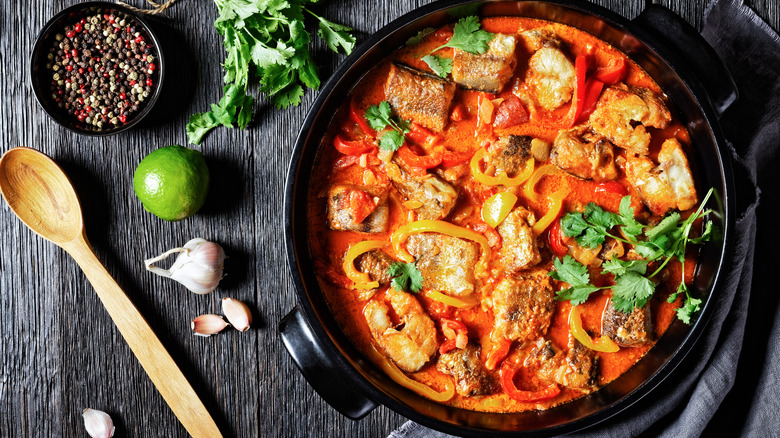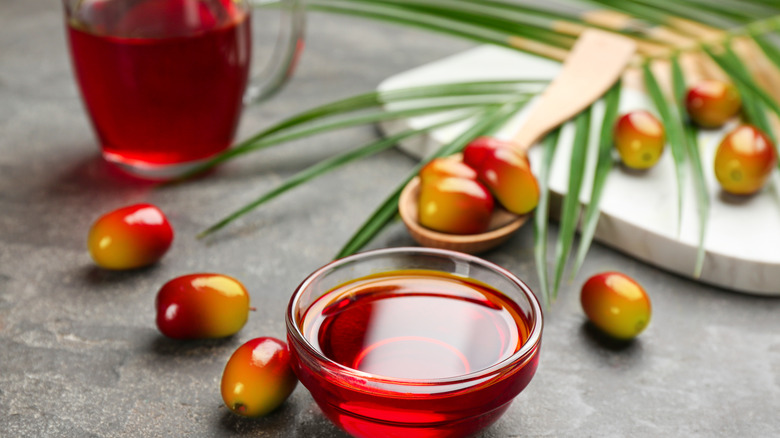When Making Brazilian Moqueca, There's One Oil You Cannot Leave Out
Brazilian cuisine is as vibrant and sensual as its culture. From decadent steaks and chocolate truffles to piquant seafood and açaí smoothies, Brazilian dishes are always a party in your mouth. The seafood stew, moqueca, is one of the most sumptuous and complex seafood dishes in the Brazilian culinary repertoire, representing the fusion of Portuguese and African influences on Brazilian culture. Moqueca features seafood and shellfish stewed in coconut milk, lime juice, chilies, garlic, tomatoes, and herbs. The one inimitable ingredient that sets moqueca apart from a gumbo or fish curry is dendê oil. Also known as red palm oil, dendê oil comes from the bright red fruit of the African dendê palm tree.
Arriving in Brazil by way of the African slave trade, dendê oil is now as popular in Brazilian cuisine as it is in West African dishes, infusing countless recipes with its bright reddish-orange hue and unique flavor. In Brazil, it is especially popular in recipes that come from the northeastern coastal state of Bahia, a sweet spot of Afro-Brazilian culture and food. As a Bahian dish, moqueca isn't moqueca without dendê oil.
Described as earthy, sweet, bitter, and spicy all at once, dendê oil's floral aroma and elaborate flavor profile are as loud and colorful as its bright red hue. It pairs especially well with umami-rich seafood, bringing a richness and depth of flavor that lingers in your mouth and nose.
Where to find dendê oil and substitutes
Dendê oil is a common staple in both West Africa and Brazil where the red palm tree plays a crucial role in national agriculture and economy. However, outside of these tropical regions, the oil is practically unheard of. While you might not find it lined up with the various other vegetable oils on grocery store shelves, dendê oil isn't impossible to locate. Specialty food stores and some major grocers sell red palm oil, and there are various USDA organic red palm oil brands you can order online.
Moqueca won't taste the same without this essential ingredient, so any substitutions will fall short of the authentic recipe. That said, you can use one or more seed and vegetable oils to substitute dendê oil if you're unable to obtain it. Coconut oil comes the closest to palm oil's semi-solid consistency and slightly sweet flavor. Annatto oil has a similar red hue but lacks flavor. Some moqueca recipes recommend substituting peanut and sesame oils for dendê oil and others recommend extra virgin olive oil. In a pinch, a blend of annatto, coconut, and sesame oils would come closest to imitating dendê oil's complex color and flavors.

